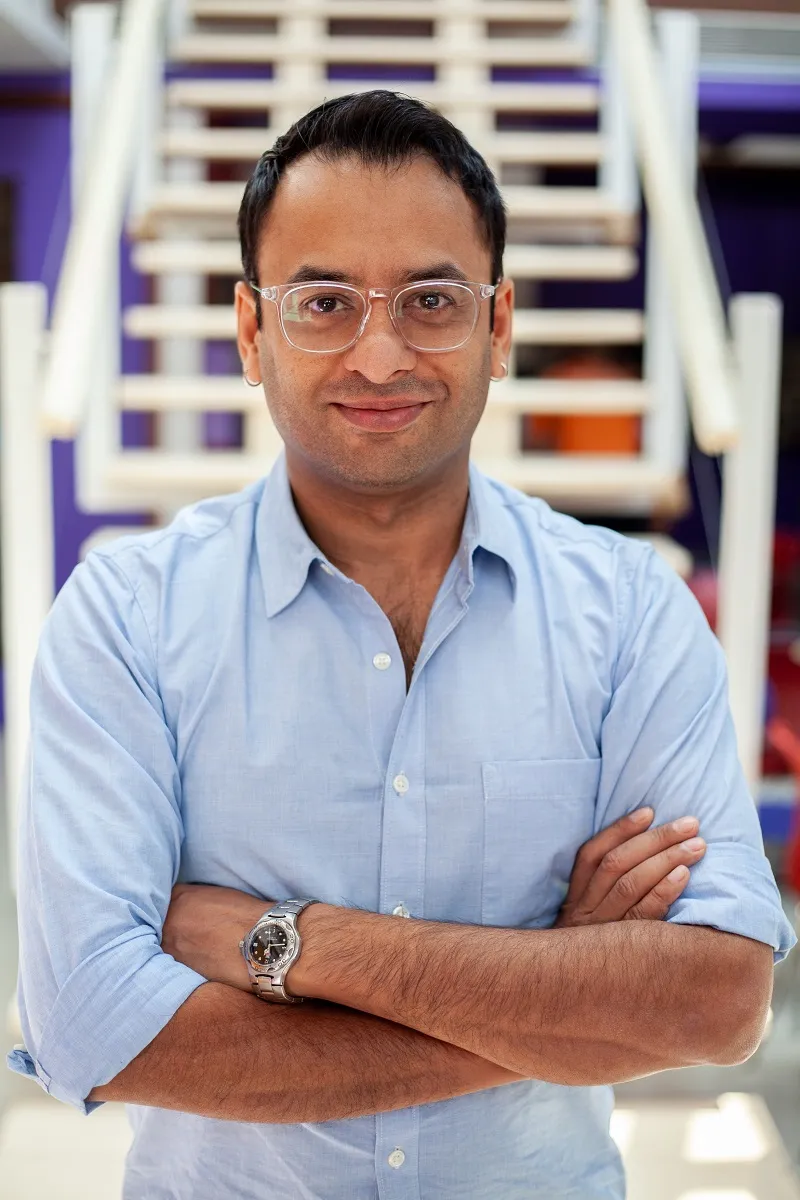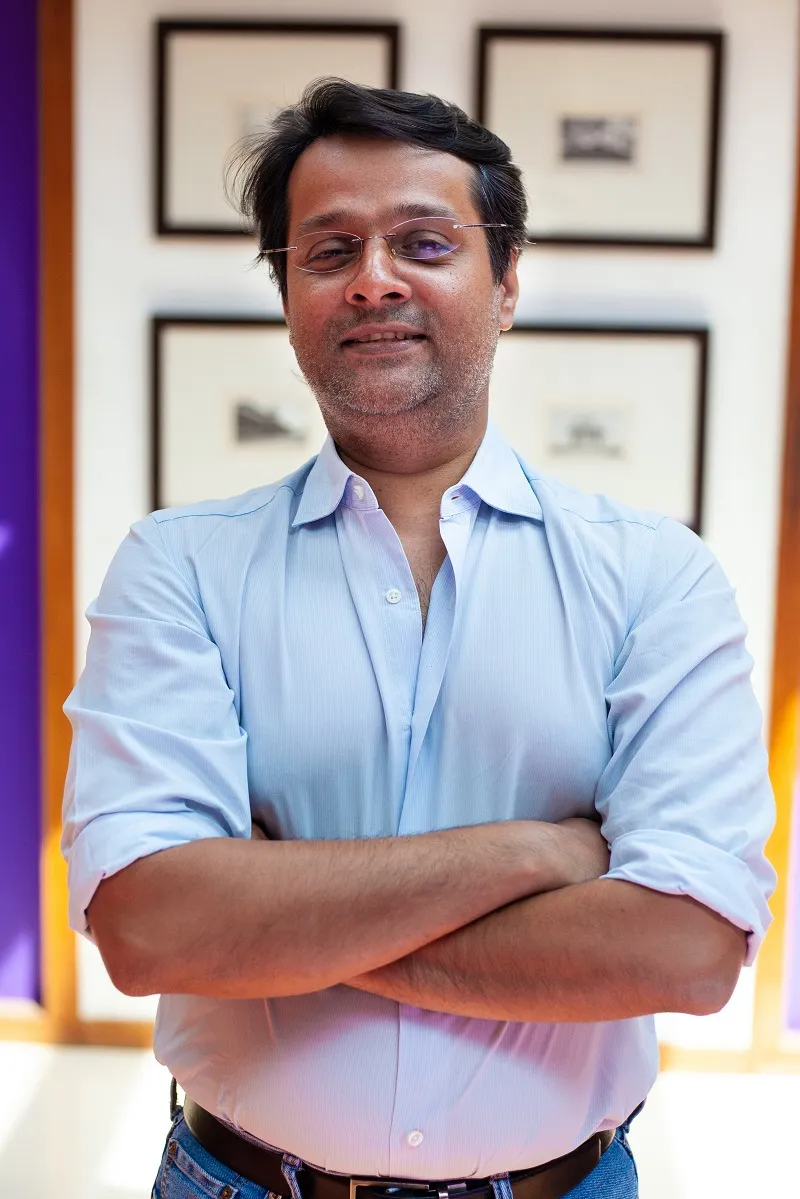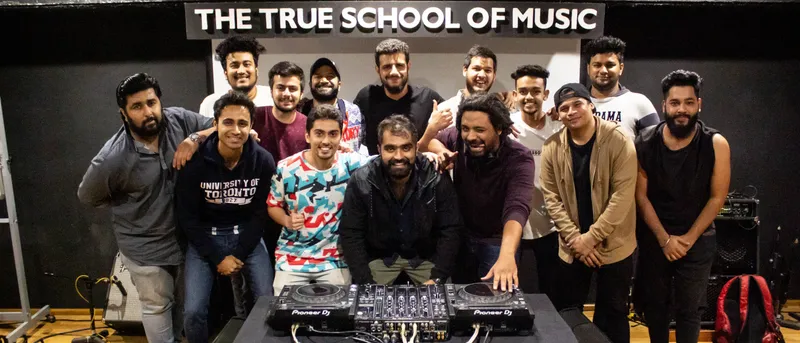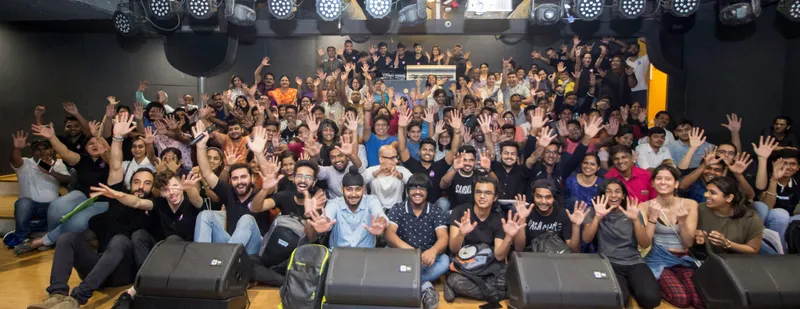With The True School of Music, Bollywood composer Ashutosh Phatak is tapping India’s music talent
Founded in 2013, The True School of Music recently partnered with Vijaybhoomi University to provide degrees in music. The school boasts of about 30 batches of graduates.
While music composer, producer, and multi-instrumentalist Ashutosh Phatak was working for blueFrog, he realised that many music professionals in India were limited by their knowledge and exposure to music education. A student of Western Classical Music Theory from the University of Pennsylvania himself, Ashutosh also realised how travelling abroad for music education was financially prohibitive for most Indians, and that a local solution had to be found.

Ashutosh Phatak, Co-founder of The True School of Music
“The idea has always been at the back of my mind when Chandy (Nitin Chandy, former CTO at blueFrog) approached me and said ‘Why don’t we actually do this?’,” Ashutosh tells YS Weekender.
Within a year’s time, the duo set up a music school with a full curriculum, faculty, and facility. In September 2013, The True School of Music was launched with 35 students in its first batch.
Recently, The True School of Music partnered with Vijaybhoomi University to provide degrees in music. Starting this month, students of The True School of Music will be studying in the hills of Karjat, with testing, an isolation center, and an infirmary on-ground, to provide a safe environment in these testing times.
Overcoming hurdles
The biggest challenge for the founders has been convincing the parents of the students of The True School of Music that there are viable career opportunities in the music industry.
“One only thinks about the stars as the pinnacles of success but there are many people who are busy within the industry and successfully living fulfilling lives. Whether it is recording engineers in the film world, composers from the TV or advertising world, playback singers, or DJs,” Ashutosh says.
What kept Ashutosh and Nitin going was their personal experience in the industry, which gave them the conviction to stand by the beliefs that there really is a path to have a successful and happy career in the music industry. “If one has an entrepreneurial kind of mind, I believe it is possible to have a reasonably profitable career, which is ever growing in the Indian music industry,” he adds.

Nitin Chandy, Co-founder of The True School of Music
Finding the right fit
Generally, students who have completed their Class 12 board exams are eligible to apply for a course at The True School of Music. However, the music school also has students who are graduates of engineering or law, and wish to pursue a career in music but probably did not have the opportunity to study music earlier.
For programmes related to guitar, bass, drums, and piano, students are required to have some knowledge of the instrument they want to study.
“Overall, we audition and interview students, and then accept them into our programme,” Ashutosh explains.
The True School of Music also has a VSAT or standard aptitude test students need to take to get admission. The music school offers five different courses:
- B.Mus Music Production, which costs Rs 12 lakh per student, for a three-years course
- B.Mus Contemporary Performance (Guitar/Drums/Bass/Piano/Western Vocals), which costs Rs 12 lakh per student, for a three-years course
- B.Sc Sound Engineering and Production, which costs Rs 10.8 lakh per student, for a three-years course
- B.Mus Hindustani Playback Vocals, which costs Rs 10.8 lakh per student, for a three-years course
- B.Mus Music Production and Performance (dual major), which costs Rs 14.96 lakh per student, for a four-years course

Additionally, The True School of Music teaches all genres of western contemporary music — Rock, Blues, Pop, RnB, Disco, Funk, Latin, Jazz, Indie, Neo-soul, and Dance Music, among others.
“We believe students should be versatile and trained in all genres of music to make the most of all the opportunities available in the industry,” Ashutosh adds.
The school boasts of an experienced team of Indian and international faculty who bring in global perspectives and influence. The team has approximately 25 professional teachers and industry mentors, including Ranjit Barot, Salim Merchant, and Sridhar Subramanium, among others.

Music industry
According to Economic Impact of Recorded Music Industry in India, a 2019 report by Deloitte, the recorded music industry in India was worth Rs 1,068 crore. Statista further reports that the music industry in India is projected to have a market size of around Rs 19 billion by the end of this year.
Some of the renowned music schools in India include the KM Music Conservatory, the Shankar Mahadevan Academy, Delhi Music Academy, and Rabindra Bharati University, among others.
However, Ashutosh explains:
“The True School of Music’s USP lies in the fact that we are focusing on practical, career-oriented education. Since we come from the industry and have first-hand knowledge of what is required to reach a level of success in the industry, our curriculum is specifically designed for this and to add that, a combination of other courses that makes it a unique place to discover a combination of jobs one can do to stand out from the crowd and hopefully, be successful in this industry.”
So far, approximately 30 batches have graduated from The True School of Music.
However, the music school does not promise a job at the end of a programme since, “It is a talent-based industry,” Ashutosh adds. Instead, it offers industry projects during the course, providing a safety net to experiment. He adds, “This is merit-based and we encourage students to proactively apply for these projects.”
The association with Vijaybhoomi University has opened up new doors for The True School of Music, which now plans to venture into performing arts. “We have a great method and model, which I feel can be extended to other creative spaces like dance, theatre, and film,” Ashutosh says. Additionally, the music school’s internal mandate is to reach out and create curriculums for K-12 schools.
“If you approach your career with the right perspective and initiative with a focus on the combination of skills that could make you high in demand, which would increase your chances of being successful tremendously. The consumption of entertainment in some form or other is here to stay and there’s always going to be a need for creators. Entering this space can seem to be a safer option than many ‘traditional’ careers,” Ashutosh quips.
Edited by Saheli Sen Gupta









